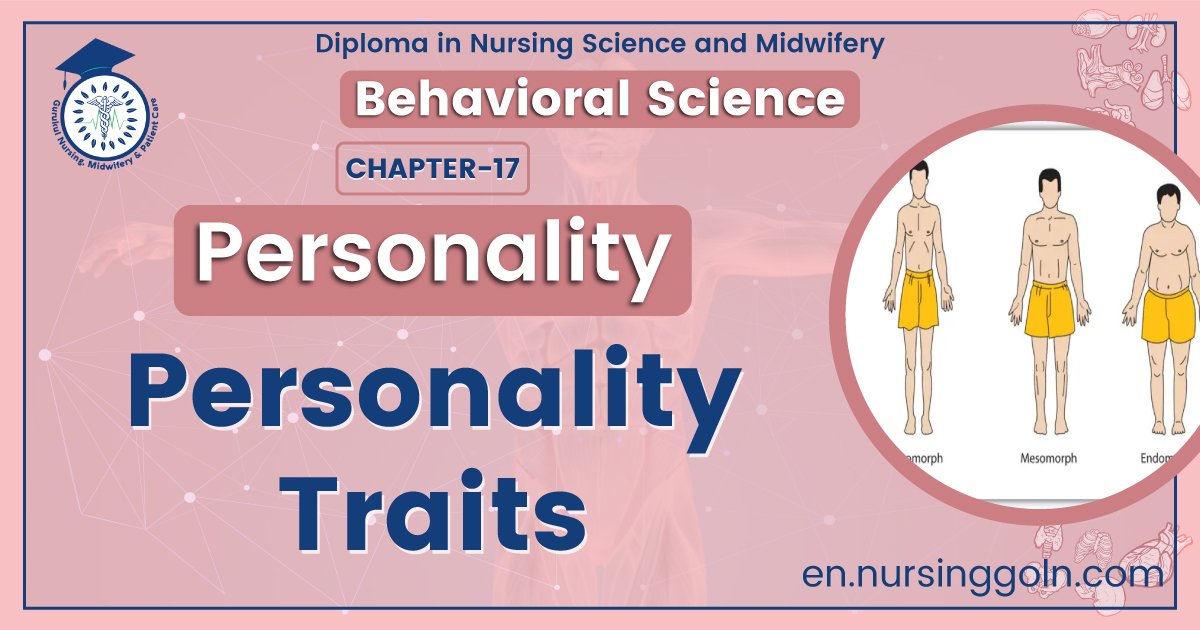Personality traits – Behavioral sciences explore the cognitive processes within organisms and the behavioral interactions between organisms in the natural world. It involves the systematic analysis and investigation of human and animal behavior through the study of the past, controlled and naturalistic observation of the present and disciplined scientific experimentation and modeling.
It attempts to accomplish legitimate, objective conclusions through rigorous formulations and observation. Generally, behavior science deals primarily with human action and often seeks to generalize about human behavior as it relates to society.
Personality traits
A personality profile is a knowledge management tool used to provide an evaluation of personal attributes, values and life skills in an effort to maximize his or her performance and contribution.
Personality traits reflect people’s characteristic patterns of thoughts, feelings, and behaviors. Personality traits imply consistency and stability someone who scores high on a specific trait like Extraversion is expected to be sociable in different situations and over time.
Or
Allport (1961) used different traits to describe the uniqueness of each individual. The most common way to describe people, say a nurse, is to list a number of qualities she should possess, e.g. patience, honesty, perseverance, thoroughness and initiative. These qualities are called personality traits. Groups of personality traits are known as personality factors or dimensions of personality. When traits are analyzed and results are put on a graph, it is called personality profile.
Personality Traits of a Nurse
- Discipline
- Responsibility
- Patience
- Commitment
- Dedication
- Punctuality
- Hard work
- Good physical stamina
- Alertness of mind
- Adaptability to follow difficult time schedules
- Ability to think in crisis to take a quick decision
- Calm, pleasant, compassionate and understanding
- Good team spirit
- Ability to help and serve needy people without getting sentimentally attached.
Factors of Personality

1. The physical factors include the physique of the individual-his size, strength, looks and constitution.
2. The environmental or social factor.
3. Mental or psychological factors including motives, interests, attitudes, will and character, intellectual capacities as intelligence, reasoning, attention, perception and imagination. These traits and factors are assessed by psychological tests. Trait theory is an approach for analyzing the structure of personality by measuring,
Theories of Personality Development
Freud’s Stages of Psychosexual Development
In addition to being one of the best-known thinkers in the area of personality development, Sigmund Freud remains one of the most controversial. In his well-known stage theory of psychosexual development, Freud suggested that personality develops in stages that are related to specific erogenous zones. Failure to complete these stages, he suggested, would lead to personality problems in adulthood.
Freud’s Structural Model of Personality
Freud not only theorized about how personality developed over the course of childhood, but he also developed a framework for how overall personality is structured. According to Freud, the basic driving force of personality and behavior is known as the libido. This libidinal energy fuels the three components that make up personality: the id, the ego and the superego.
The id is the aspect of personality present at birth. It is the most primal part of personality and drives people to fulfill their most basic needs and urges. The ego is the aspect of personality charged with controlling the urges of the id and forcing it to behave in realistic ways.
The superego is the final aspect of personality to develop and contains all of the ideals, morals and value imbued by our parents and culture. This part of personality attempts to make the ego behave according to these ideals. The ego must then moderate between the primal needs of the id, the idealistic standards of the superego and reality.
Freud’s concept of the id, ego and superego has gained prominence in popular culture, despite a lack of support and considerable skepticism from many researchers. According to Freud, it is the three elements of personality that work together to create complex human behaviors.
Erikson’s Stages of Psychosocial Development
Erik Erikson’s eight-stage theory of human development is one of the best-known theories in psychology. While the theory builds on Freud’s stages of psychosexual development, Erikson chose to focus on how social relationships impact personality development.
The theory also extends beyond childhood to look at development across the entire lifespan.
At each stage of psychosocial development, people face a crisis in which a task must be mastered. Those who successfully complete each stage emerge with a sense of mastery and well- being. Those who do not resolve the crisis at each stage may struggle with those skills for the remainder of their lives.
Piaget’s Stages of Cognitive Development
Jean Piaget’s theory of cognitive development remains one of the most frequently cited in psychology, despite being subject to considerable criticism. While many aspects of his theory have not stood the test of time, the central idea remains important today: children think differently than adults.
According to Piaget, children progress through a series of four stages that are marked by distinctive changes in how they think. How children think about themselves, others, and the world around them plays an important role in the formation of personality.
Kohlberg’s Stages of Moral Development

Lawrence Kohlberg developed a theory of personality development that focused on the growth of moral thought. Building on a two-stage process proposed by Piaget, Kohlberg expanded the theory to include six different stages.
While the theory has been criticized for a number of different reasons, including the possibility that it does not accommodate different genders and cultures equally, Kohlberg’s theory remains important in our understanding of how personality develops.
Final Thoughts
Personality involves not only inborn traits, but also the cognitive and behavioral patterns that influence how people think and act. Temperament is a key part of personality that is determined by inherited traits. It is the aspects of personality that are innate and have a lasting influence on behavior.
Character is another aspect of personality influenced by experience that continues to grow and change throughout life. While personality continues to evolve over time and respond to the influences and experiences of life, much of personality is determined by inborn traits and early childhood experiences.
